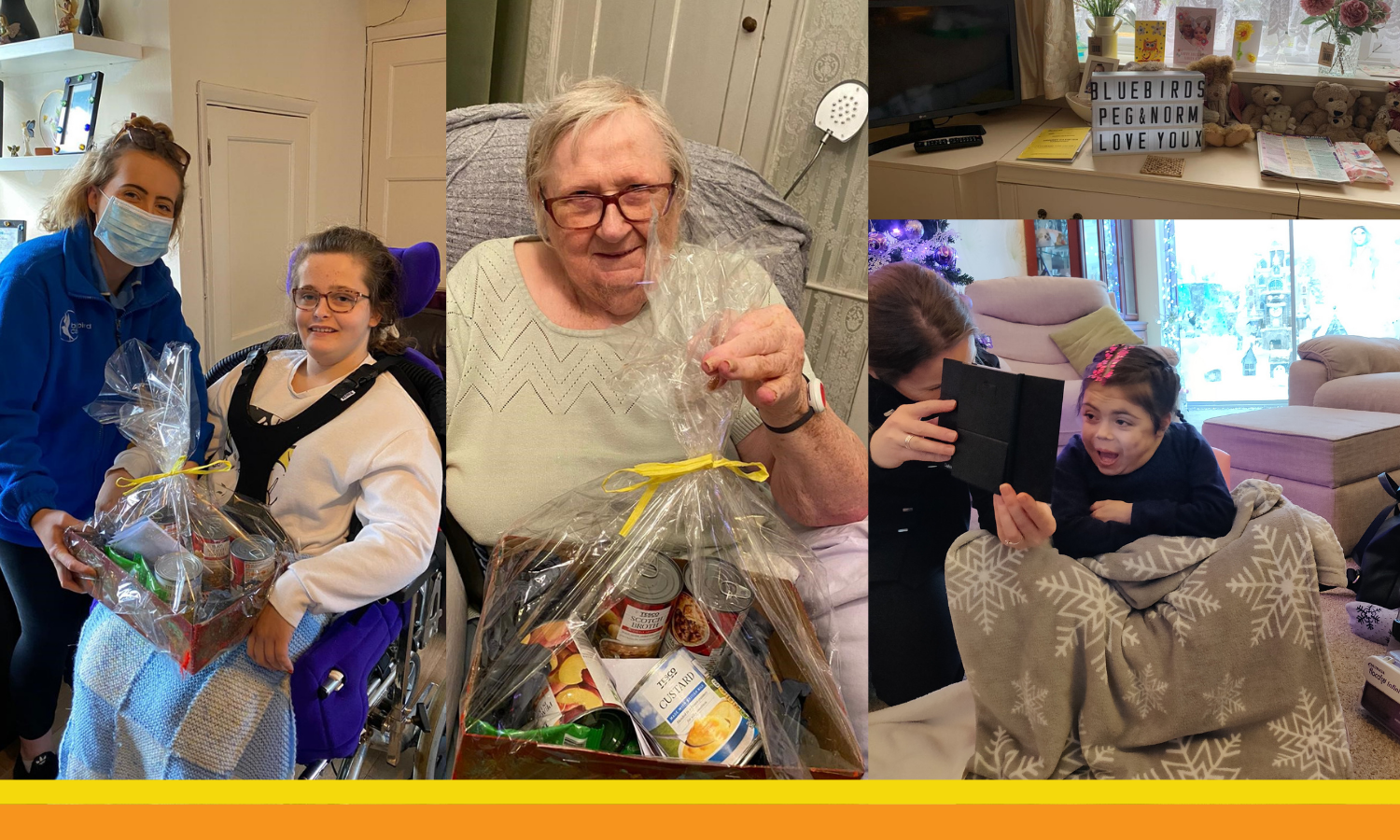Careers Week 2021: What is Domiciliary Care?
There are lots of different careers in Care, from the different types of Care Assistants, to Management roles. To help you make the right decision, here is an overview of Domiciliary Care.
01/03/2021
There are lots of different careers in Care, from the different types of Care Assistants, to Management roles. To help you make the right decision, here is an overview of Domiciliary Care.
In 2020 we saw a considerable increase in the demand for Domiciliary Care (care in the customer's own home). It was ranked one of the fastest-growing sectors in 2019, with 71% of the population now preferring to stay in their own homes.
So what is Domiciliary Care?
Domiciliary Care is quite simply providing care in a customers' own home. Services may involve routine household tasks within or outside the home, personal care of the customer and other domestic services necessary to maintain an individual's independence. It is an excellent alternative to residential care or for someone who doesn't need constant support.
Anyone at any stage of life could need domiciliary care. We can provide services to people who need: temporary care for someone whilst their primary carer (usually a family member) is away, helping someone get back on their feet after some time in the hospital, or provide an ongoing service such as a drop-in visit once a month, up to five times a day, depending on their needs. Some customers need a Live-in Carer, and although this is a service we also provide, we have Live in Carers for this.
Who needs Domiciliary Care?
Anyone can need Domiciliary Care. There are different types of services you can work for, which will change the variety of people you work with. For example, a service may only work with people living with a learning disability, or elderly care, whereas some services, like ours, work with a huge range of people. Our youngest customer is three months old, and our oldest customer is coming up for their 102nd birthday. We work with people living with learning and physical disabilities, mental health needs, and sensory impairment, as well as those with specific diagnoses such as Dementia or Parkinsons.

What do you do as a Domiciliary Care Assistant?
As a Domiciliary Carer, you are an essential part of their daily routine, and the person you are assisting is relying on you to maintain their independence.
If you are new to care, you will receive full training that will give you all of the tools and skills you need to help you settle in. You will also be signed up for the Care Certificate, a 12-week course including theory and practical elements.
Generally, care can be categorised into four main themes: personal care, medication management, domestic tasks, and social inclusion. For each person you care for, you will provide a combination of these four elements. With some customers, we provide companionship and help with the weekly shopping visit. In contrast, other customers may need support with getting up and ready for the day or their evening/ bedtime routine. We may also be supporting with mealtimes and keeping their home clean and tidy. You will receive full training on all four elements to ensure you are confident before you start providing this type of care un-aided.
Personal Care
Personal care refers to the support of personal hygiene and toileting, along with dressing and maintenance of your personal experience.
Personal care for a customer can include a lot of different tasks. Examples of tasks you may be asked to complete are bathing, showering, applying lotions, dressing and getting ready for bed, oral hygiene, applying make-up and hair care, support with shaving, and use of personal hygiene equipment and more.
Medication Management
We can support a customer with their medication needs by overseeing the administration of any prescribed medications. This can include reminding a customer to take their medication or support with administering.
You will receive full training on how to administer medication to your customers.

Domestic Tasks
Household tasks such as light domestic cleaning also form part of our role, and this can include washing up, hoovering, dusting, making beds, and taking the bins out.
Social Inclusion
Care doesn't just revolve around the physical wellbeing of our customers; we also support them with their emotional needs too. A customer may just want someone to talk to as sometimes we are the only person they see that day: a cup of tea and a chat is the most important part of their visit. Other customers may have hobbies that they would like to maintain, and we can support them with these. These can be anything the customer wants to do, from bowling, to silent discos, to a walk in the local park. Keeping customers active and engaged in their local community is a really important part of what we do.

Career Progression in Domiciliary Care
Domiciliary care is a great place to start for someone wanting to go into Care because it will give you an overview of the different styles of care, different customers you can work with, and give you training in specialist areas too.
At Bluebird Care, you can progress onto our Clinical, Mental Health, Mary Poppins, or Rapid Response teams, as well as pursuing a career into roles such as mentor, supervisor, coordinator, or management levels such as Training, Recruitment, and Senior Management. There are so many directions to pursue, it's important to speak to your employer about the opportunities available to you within their service.
Some Care Assistants also go onto train to be Nurses, Occupational Therapists and Doctors, and we have had lots of professionals start with us and are now qualified in their chosen fields.
"Bluebird Care was a fantastic place to start my care journey! I am now 4 years into Med School and aim to qualify as a paediatric doctor. The skills they taught me massively helped with the first year at University, as well as teaching me how to build rapport with my patients. I highly recommend Bluebird Care to anyone interested in a career that makes a difference and helps people!"

